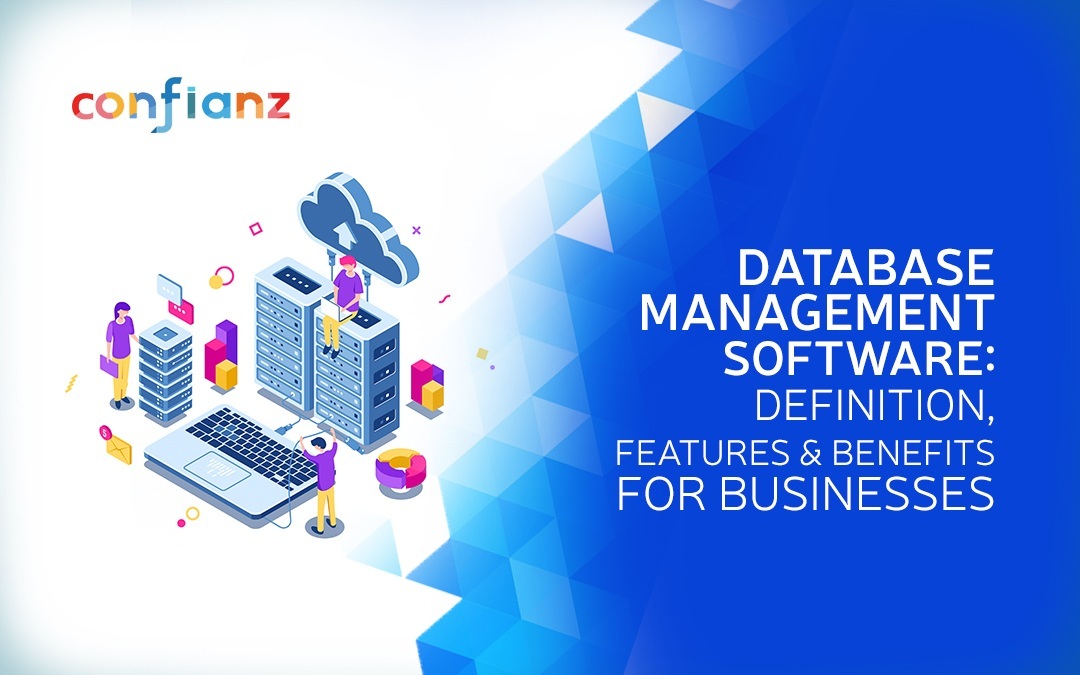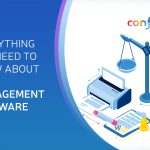In an organization, a database manager has several responsibilities. From customer info to financial and medical data, data managers are entrusted with highly sensitive information. They are required to keep databases accurate, functional, and private. Additionally, they need to remain updated with the latest database management software and testing to ensure that it’s operative. Management needs to be prepared for any disaster recovery scenario. They should also know how to configure hardware, install records, maintain, repair, and troubleshoot database problems.
Before we proceed with the benefits and features of this system, let us review the database management software definition.
Database System: A Brief Analysis
A database is an accumulation of structured data that eases data management and accessibility for an organization. The prime & predominant purpose of the database is to help managers organize and store voluminous information that primarily improves data convenience. By utilizing database software, you can enhance your data analysis and get actionable insights without further setbacks. Moreover, you can promptly and effectively find needed data in the database as it allows multiple users to access and modify it accordingly.
What is Database Management Software (DBMS)?
DBM Software is used to manage, store, and manipulate data such as records, file structures, format, names of fields, etc., in a database environment. Any users with access can construct their own databases using DBM software to meet their business requirements. For instance, dBase was one of the first software for database management for microcomputers.
The system diagram also supports the design, creation, administration, execution, and management of an organization-wide information administration system.
Features of DBMS
Implementing software for managing inventories or resources is an advanced concept that you can present to your organization. Business has changed, and these days they must have a robust database management software to stay competitive.
Here are some features of DBM software that every business owner should know:
- Less Redundancy & Repetition
The chances of data duplication in a database are perhaps high due to the access of several users on one database. A DBMS lessens data redundancy and repetition by generating a sole data storehouse that multiple users can access, even permitting simple data mapping during executing ETL.
- Intensified Security
The security of your data becomes the top-most concern of your business when controlling considerable amounts of data. The database management system software does not enable full access to anyone except the department head or database administrator. Only the access holder can control and modify the database and user access. That makes the database system evenly secured. However, all other users are restricted from certain activities in the system, depending on their access level.
- Massive Databases & Easy Maintenance
Most organizational data or information gets stored in a massive database. The software for database management helps to manage these databases via user-defined validation and integrity constraints, for example, user-based access.
- Support Multi-User Environment
DMB software supports and features a multi-user environment that allows multiple users to access as well as work on data concurrently.
- Advanced File Consistency
If you implement a database management system, your organization can implement a standard operating proceedure to use files. You can then ensure data consistency with applications and other operations. Streamlining and manipulating advanced DMS is essential. The advanced database system allows applying similar rules to all the data within the organization.
Best database management software (DBMS):
DBM software emphasizes data independence as the storage formats and mechanism can be altered without modifying the complete usage within the database. Here is the list of popular DBMS in 2021:
- Microsoft Access DBMS
- MySQL
- Amazon Relational Database Service
- Amazon Aurora
- Oracle
- FoxPro
- DbVisualizer
- GAPC
- Universal Vehicle Database
- Amazon EC2
- Microsoft SQL Server
- Airtable
- Google Cloud Platform
- MongoDB
- PostgreSQL
- Quickbase
- Caspio
- SyncSpider
- ScaleGrid
These are a few of the best DBM software that are widely used. However, MySQL is a common type of DBMS tool that is a free business database software. It is a high-performing database software that supports organizational users build scalable database applications. Similarly, the features for FoxPro are all-inclusive, including creating, editing, adding, and removing data from a database.







